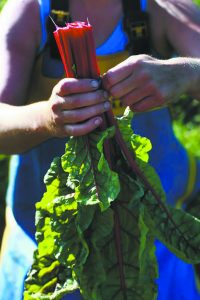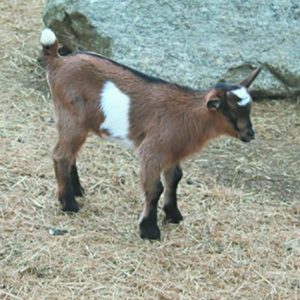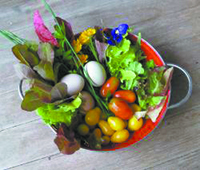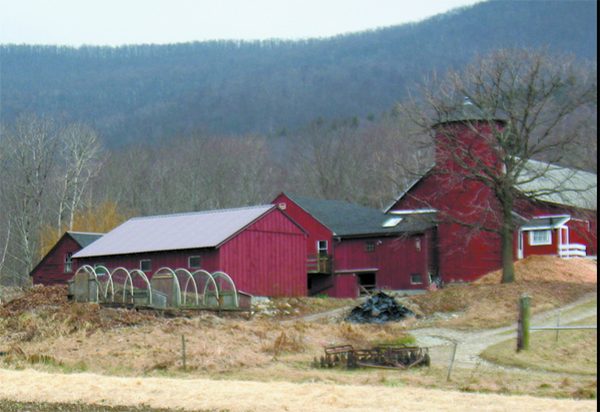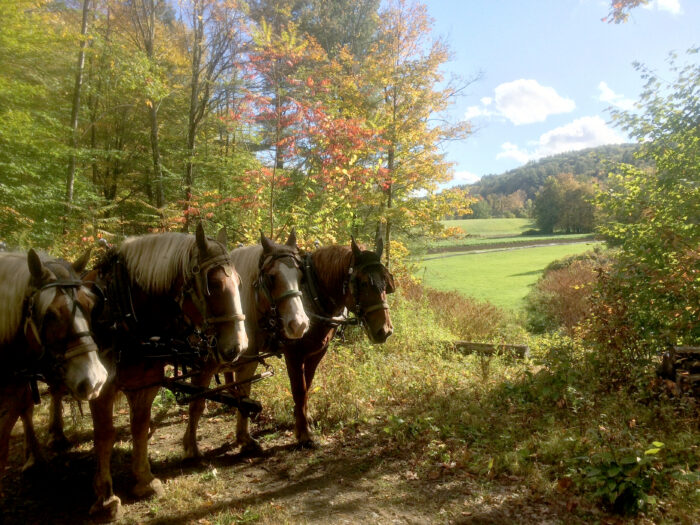
From Pleasantville to western Massachusetts doesn’t seem like a huge journey. But David Fisher has traveled a longer road than most of us would be willing to take by running a farm using methods that are far more environmentally sound than the vast majority of other agricultural businesses today. His unique solution? Horse-driven farming.
Fisher, who grew up on Munson Pond in Pleasantville, the son of John Fisher, business development manager for Inside Press, uses five work horses to plow the fields and bring in the harvest, using no fossil fuels for his farming. Fisher’s Natural Roots farm, in Conway, Massachusetts, grows salad greens, spinach, onions, carrots, beets, watermelon, and other produce, which are purchased by the local population. The farm also has a store selling locally made foods produced in an environmentally responsible way, from bread and cheese to chocolate and ice cream.
Tractors using diesel oil for power and emitting carbon dioxide are not present on the farm. The horses eat grass and hay grown in Natural Roots’ fields and pastures
“Our energy comes from the Earth,” Fisher explains. “We’re trying to create a healthy soil system.” All Natural Roots fertilizer is organic, as well as the pesticides Fisher uses. Most industrial fertilizers and pesticides are oil-based and are therefore big contributors to heating up the climate, as well as major pollutants of water and soil. “I want to live my life to be close to the land,” he says. Also, using his horses, is “a way for me to address climate change.”
Visitors are welcome on the farm. “Families with kids love to see the horses,” Fisher explains. “We’re open to the public, for people to visit and enjoy the farm. It’s a gift for me to be here and I want to share it.”
The horses all have different personalities, Fisher says. Their names are George, Pat, Gus, Tim, and Land. Pat is old, mellow, and patient. Gus wants to “just go and hustle and get it done.”
“They’re all willing to work,” he explains. Sometimes, they get anxious when they’re not working. “If a horse stands all day long, we have to get the wiggles out.” Also, in rare circumstances they may get agitated by noise, so they need to be calmed down.
The farm works on a Community Supported Agriculture (CSA) model. People buy a share of the harvest for one year. They contribute a share of the cost of running the farm. “The customers give us money for seed, labor, and other costs on the farm. They get fresh produce, often picked on the day they come to the farm. The CSA model gives us the money as we need it. That helps us avoid loans (to operate). Some of our members have been coming here for 20 years. We supply produce for more than 200 families.”
Customers can buy a regular share of produce, a large share, or a part-time share. Families with lesser income can buy a discounted share of each category of share offered. Each week they can come to the farm and fill up their bag according to the share of the produce they’ve purchased. The farm offers gift cards too.
CSA subscribers also enjoy the natural beauty of the farm. They can swim in the South River, which runs through the property, or pick blueberries, raspberries, beans, or flowers in one of the farm’s fields.
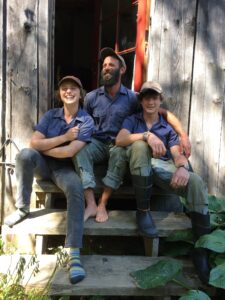
Fisher generally works an eleven and a half-hour day. The farm employs an assistant manager and two apprentices who work full time from March through December. A friend and some other people help in the summer. Including Fisher, the core crew consists of four people. On busy harvest days, the farm may have up to eight or nine people assisting with the work. Fisher’s two children also help.
The farm has suffered intense storms at times. Hurricane Irene flooded the fields. Floods have at times deposited huge amounts of sand on crop land. Natural Roots’ CSA subscribers have helped Fisher get all his equipment out of the field and harvested “everything we could” before anticipated storms.
Fisher was inspired to live so close to nature when he attended a wilderness camp for eight years in the Adirondack Mountains as a camper, then a staffer. The camp, Tanager Lodge, had no electricity. “It gave me a deeply infused reverence for the natural world,” Fisher said.
“Growing up I had a very strong environmental ethic, an awareness of the environmental crisis. The land called me.”
